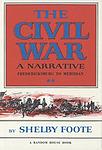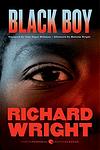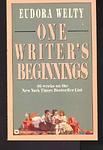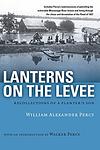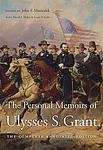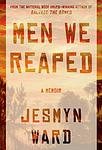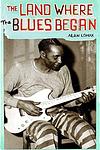The Greatest "Nonfiction, Mississippi" Books of All Time
Click to learn how this list is calculated.
This list represents a comprehensive and trusted collection of the greatest books. Developed through a specialized algorithm, it brings together 300 'best of' book lists to form a definitive guide to the world's most acclaimed books. For those interested in how these books are chosen, additional details can be found on the rankings page.
Genres
The category of "Mississippi" books encompasses literature that is set in or inspired by the state of Mississippi. These books may explore the unique culture, history, and landscape of the region, as well as the social and political issues that have shaped its identity. From classic works by William Faulkner and Eudora Welty to contemporary novels by Jesmyn Ward and Michael Farris Smith, Mississippi literature offers a rich and diverse perspective on the American South.
Countries
Date Range
Reading Statistics
Click the button below to see how many of these books you've read!
Download
If you're interested in downloading this list as a CSV file for use in a spreadsheet application, you can easily do so by clicking the button below. Please note that to ensure a manageable file size and faster download, the CSV will include details for only the first 500 books.
Download-
1. The Civil War by Shelby Foote
This comprehensive three-volume series provides an in-depth and detailed narrative of the American Civil War. It encompasses the political, social, and military aspects of the war, offering a balanced view of both the Union and Confederate sides. The series also delves into the personal experiences of key figures, including generals and soldiers, as well as civilians affected by the war. This work is known for its meticulous research, vivid descriptions, and engaging storytelling style.
-
2. Black Boy by Richard Wright
"Black Boy" is an autobiographical account of a young African-American boy growing up in the South during the early 20th century. The book explores his experiences with extreme poverty, racism, and his struggle to find his place in a society that marginalizes and devalues him. The protagonist's desire for self-expression and understanding leads him to a love of literature and writing, providing him with a means to challenge and critique the oppressive social structures around him.
-
3. Life on the Mississippi by Mark Twain
This book is a semi-autobiographical account of the author's experiences as a steamboat pilot on the Mississippi River before the American Civil War. It provides a detailed and humorous depiction of life and society along the river, including the author's own journey from an eager young apprentice to a seasoned riverboat pilot. The book also includes a travelogue of a journey down the Mississippi River much later in life, offering a look at the dramatic changes brought about by industrialization and the Civil War.
-
4. One Writer's Beginnings by Eudora Welty
This memoir explores the author's early life in Mississippi and her journey towards becoming a writer. The narrative is divided into three sections: Listening, Learning to See, and Finding a Voice, which respectively discuss the author's childhood memories, her education and love for reading, and her growth as a writer. The book delves into the author's personal experiences, her family history, and the influence of the Southern United States on her work.
-
5. The Warmth Of Other Suns by Isabel Wilkerson
"The Warmth of Other Suns" is a powerful and deeply moving narrative that chronicles the Great Migration, a significant event in American history that saw millions of African Americans leave the South in search of better opportunities and freedom from racial oppression. Through the compelling stories of three individuals, the book explores the challenges, triumphs, and sacrifices made by these courageous migrants as they embarked on a journey to find a new life in the North and West, ultimately reshaping the social and cultural landscape of America.
-
6. Coming Of Age In Mississippi by Anne Moody
The book is a powerful autobiographical account of a young African American woman's life growing up in rural Mississippi during the 1940s and 1950s. It vividly portrays the struggles with poverty, racism, and sexism in a deeply segregated society, as well as her burgeoning activism. The narrative follows her journey from childhood, through her college years, and into her involvement with the Civil Rights Movement, offering a personal perspective on the fight for racial equality in the United States. Her story is one of courage and determination, reflecting the broader experiences of many black Americans during a pivotal era in American history.
-
7. Rising Tide by John Barry
"Rising Tide" is a historical account that explores the impact of the Great Mississippi Flood of 1927 on American society. The narrative details the catastrophic event and the subsequent political and social changes that occurred, including the shift in African American voting patterns from the Republican to the Democratic party. The book also delves into the engineering efforts to control the Mississippi River and the environmental consequences of such efforts.
-
8. North Toward Home by Willie Morris
"North Toward Home" is a memoir that explores the author's journey from his childhood in the South during the 1940s, through his college years in Texas, and finally his time in New York City as a young writer in the 1960s. The book offers a vivid portrayal of the South's racial tensions and the author's struggles with the cultural differences in the North. The author's longing for his Southern roots while grappling with the stark realities of racism and social change forms the central theme of the book.
-
9. Lanterns on the Levee by William Alexander Percy
"Lanterns on the Levee" is a memoir that captures the author's life growing up in the Mississippi Delta during the early 20th century. It provides a vivid portrayal of the Southern aristocracy, their traditions, and their struggles with racial tensions and changing societal norms. The memoir also delves into the author's personal struggles with his identity and his search for meaning in life, offering a unique perspective on the American South during a time of significant change.
-
10. Personal Memoirs of Ulysses S. Grant by U. S. Grant
This book is a first-person account of the life and military career of a notable American Civil War general who later became the 18th President of the United States. It covers his childhood, his time at West Point, his experiences in the Mexican-American War, and his crucial role in the Civil War. The memoir also delves into his presidential years, offering a unique perspective on historical events from a key player's point of view. It is widely praised for its honesty, insight, and clear, straightforward style.
-
11. The Country Blues by Samuel B. Charters
"The Country Blues" is a seminal exploration of the origins and development of the blues genre, particularly focusing on its rural roots. The book delves into the lives and music of early blues musicians, tracing the evolution of the blues from its beginnings in the American South. Through detailed analysis and personal interviews, the narrative captures the profound emotion and cultural significance of the blues, highlighting its impact on American music history. The author's research and storytelling provide a deep appreciation of the genre's artistic depth and its role as a voice for its community.
-
12. Heavy: An American Memoir by Kiese Laymon
This memoir is a profound exploration of the author's life as a Black man in America, grappling with the complex intersections of weight, identity, and societal expectations. Through a narrative that is both deeply personal and universally resonant, the author confronts the burdens of his own body, the fraught relationship with his mother, and the struggles with gambling, violence, and education. The book is a raw examination of the ways in which both personal and cultural history shape our bodies and our lives, and how the weight of carrying these stories can be both a source of immense strength and a heavy, often unbearable, load.
-
13. Men We Reaped by Jesmyn Ward
This memoir is a poignant exploration of the author's life growing up in a poor, rural, predominantly black community in the Southern United States, and the tragic deaths of five young men close to her, including her brother. Through her personal experiences, the author provides a powerful critique of systemic and institutional racism, poverty, and the lack of opportunities for black men in America. The narrative weaves together these stories of loss, revealing the devastating impact of societal inequities on marginalized communities.
-
14. Grant by Ron Chernow
"Grant" is a comprehensive biography of the 18th President of the United States, Ulysses S. Grant. Written by Pulitzer Prize-winning author Ron Chernow, the book explores Grant's early life, military career, presidency, and post-presidential years. Chernow portrays Grant as a complex and often misunderstood figure, highlighting his military genius and leadership during the Civil War, as well as his struggles with alcoholism and financial ruin later in life. The book also delves into Grant's relationships with his wife, Julia, and political figures such as Abraham Lincoln and William Tecumseh Sherman. Overall, "Grant" offers a detailed and nuanced portrait of one of America's most significant historical figures.
-
15. The Land Where the Blues Began by Alan Lomax
This book explores the origins and cultural significance of blues music in the Mississippi Delta. It provides a detailed account of the author's experiences in the 1930s and 1940s, when he traveled through the region, recording interviews and music from local blues musicians. The book vividly portrays the harsh living conditions and systemic racism that influenced the development of blues music, and celebrates the resilience and creativity of the African American musicians who created this influential music genre.
-
16. Sons of Mississippi by Paul Hendrickson
"Sons of Mississippi" is a powerful exploration of the legacy of racism in the American South. The book uses a famous photograph of seven Mississippi sheriffs preparing to thwart James Meredith's integration of the University of Mississippi in 1962 as a starting point. The author then traces the lives and descendants of these men, providing a deep and nuanced look at the enduring effects of prejudice and discrimination, as well as the struggle for civil rights and racial equality in the United States.
-
17. Sweet Taste of Liberty: A True Story of Slavery and Restitution in America by W. Caleb McDaniel
This book tells the true story of a freed African American woman who was kidnapped and sold into slavery, and her fight for justice and restitution after the Civil War. It provides a detailed, personal account of her journey, legal battles, and the historical context of the time, shedding light on the injustices suffered by African Americans, even after they were legally freed. The narrative also explores the broader themes of racial inequality, reparations, and the lasting impacts of slavery on American society.
Reading Statistics
Click the button below to see how many of these books you've read!
Download
If you're interested in downloading this list as a CSV file for use in a spreadsheet application, you can easily do so by clicking the button below. Please note that to ensure a manageable file size and faster download, the CSV will include details for only the first 500 books.
Download